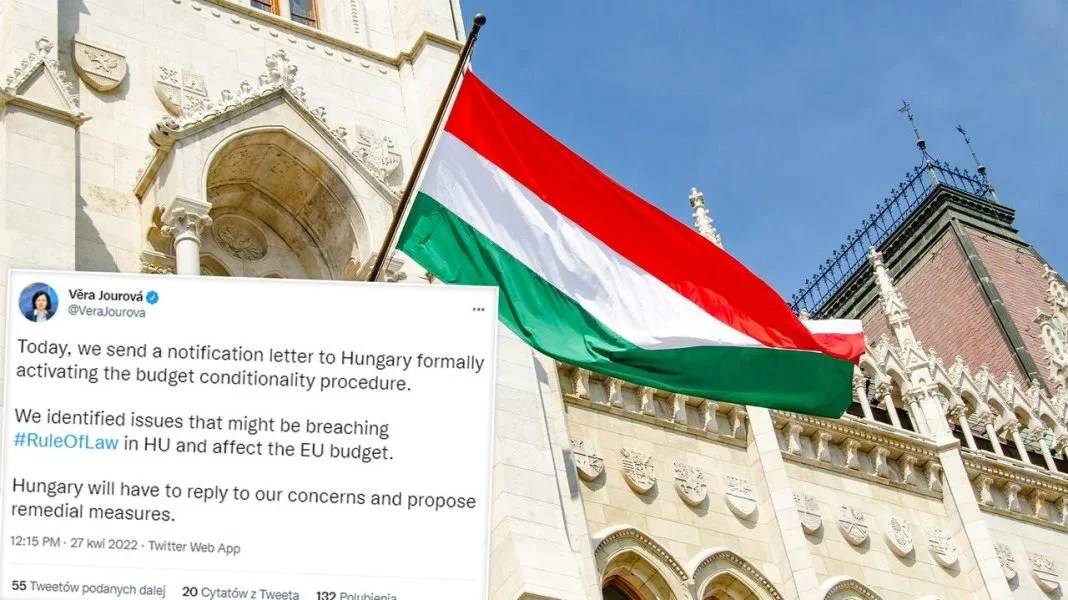News Updates for 29 April
EU moves to freeze funds for Hungary in first use of conditionality powers
Newly re-elected Hungarian Prime Minister Viktor Orban’s government faces the prospect of European Union funds being withdrawn over corruption concerns, as the European Commission puts its rule of law conditionality mechanism into play for the first time.
The European Commission notified Orban’s government in a formal letter this week, following reports that EU subsidies had been directed to political associates and allies. The EU anti-corruption authority OLAF found that Hungary had irregularities in nearly 4% of its spending of EU funds in 2015-2019, compared to an average across the Union of 0.23%.
"We identified issues that might be breaching the rule of law in Hungary and affect the EU budget," said European Commissioner Vera Jourova in a press conference on Tuesday 26 April. "Hungary will have to reply to our concerns and propose remedial measures."
Senior EU officials said the case focused on systemic faults in Hungary's public procurement that failed to prevent single bidding, conflicts of interest and the risk of corruption. Concern about the Hungarian authorities’ management of EU funds had been aggravated by limited and ineffective investigation.
Hungary’s government now has two months to respond to the European Commission. Progress towards suspension of funds to the country is likely to be a long drawn-out process.
Majorities in Poland, Czechia, Hungary and Slovakia want action on media freedom
A survey of public attitudes in the Visegrad countries has found that a majority of citizens in Hungary, Poland, Czechia and Slovakia want national or EU action to protect media freedom.
The survey was commissioned by the Committee for Editorial Independence and the Czech committee of the International Press Institute and will be used to inform disdiscussions within the European Commission about potential legislation to safeguard media freedom.
Concerns about concentrated media ownership, official interference in reporting and journalists’ safety have become increasingly frequent in central Europe. The surveys findings undercut assertions that media restrictions have public support in these four countries. The population with the largest majority against about restrictions on the media was Poland, where 62% of respondents expressed their concerns.
Overall 71% of those surveyed in all four countries backed national legislation to defend media freedom while an overall majority of 59% supported the EU taking action.
Annual review of Council of Europe mechanism shows sharp increase in threats to journalists’ safety
A 41 percent jump in press freedom incidents in 2021 should sound an alarm, said the Council of Europe (CoE) in its annual review of reports submitted to the Platform to promote the protection of journalism and safety of journalists. Overall 2021 saw 282 alerts submitted concerning 35 countries and the deaths of six journalists, with evidence that three of whom were targeted directly.
The CoE said the alerts, which cover everything from physical attacks on media workers to the deployment of abusive litigation, in some cases reflected responses to temporary situations such as the COVID-19 pandemic. In others, however, they indicated “recurrent failings in so-called “imperfect democracies.”
OSCE Media Freedom envoy highlights threats to Serbia’s Journalists
OSCE envoy for Freedom of the Media Teresa Ribeiro has called for an end to a wave of threats and other harassment of journalists working in Serbia.
Ribeiro said that journalists being harassed by named and anonymous contacts as ‘foreign mercenaries’ and ‘traitors’, sometimes accompanied by threats of violence, was unacceptable and urged Serbia’s government to identify and prosecute those responsible.
“I am increasingly concerned by the latest barrage of threats and tone of accusations against media workers in Serbia. Such targeted anti-media manifestations – which are all too often perpetrated in direct reprisal for journalists’ work – have a chilling effect, not only on their ability to serve the public in a democratic society, but also on their physical and psychological well being,” she said.
Harassment of journalists is not a new phenomenon in Serbia and a number of media organisations and individuals journalists have gone to the police over the issue. Prosecuting authorities in Serbia have opened crininal proceedings into death threats directed towards employees of broadcaster N1TV and newspaper Danas.
Ireland likely to host new EU Anti-Money Laundering Regulator
Dublin is being considered as a location for a new European Union regulator for anti-money laundering and terrorist financing (AML/CFT) controls in a plan to centralise those responsibilities.
The proposals form part of the EU’s Security Union Strategy. If Ireland gets the nod the agency would be in Dublin, home to many global banks as EU headquarters and known for expertise in financial services.
The proposed agency would have legal powers to supervise national authorities and investigate complex financial crimes across multiple jurisdictions.
A single EU regulator means that banks will be seeking to manage costs by centralizing their AML/CFT function in one country and Ireland has an edge, the Association of Chartered Certified Accountants’ (ACCA) Irish head Caitrionia Allis told the Irish Times:
“Our financial services offering is extremely attractive, and we already have a strong cluster of banks and institutions with operations bases here. This gives us a significant advantage in attracting the new investment,” she said.

